Serendipity In Princeton, BC
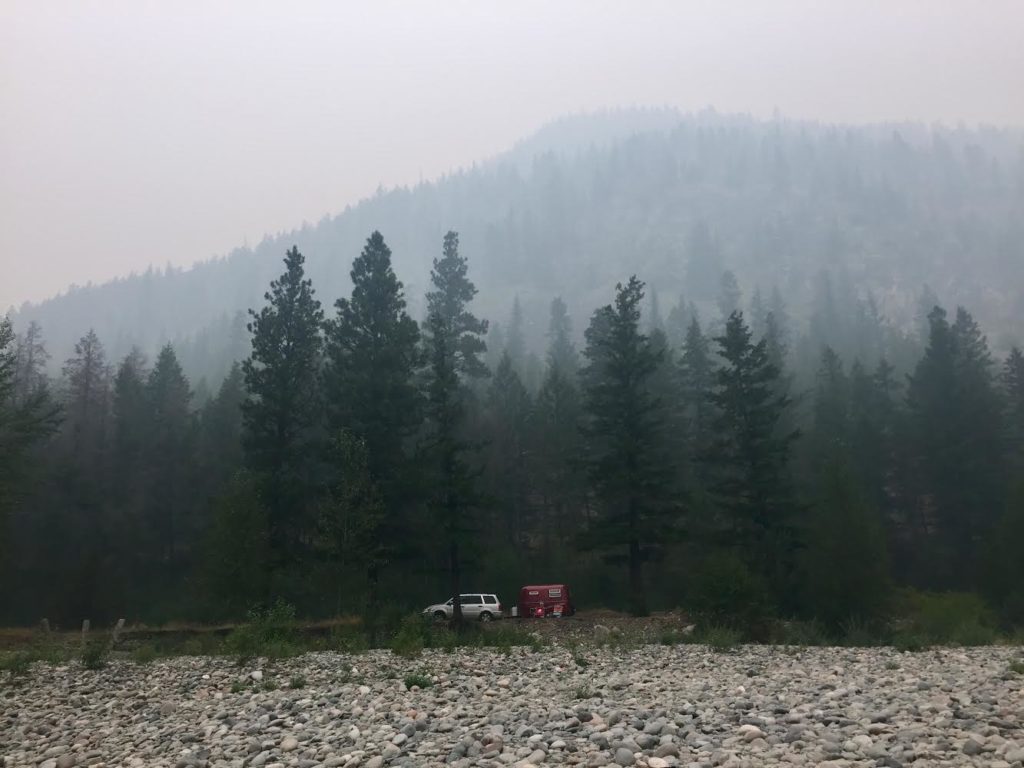
Road trips are good for many things: they get us out of the familiar and put us in touch with our surroundings in a whole new way. We see places differently, we meet people we wouldn’t normally, and we get inspired. This is why I love road trips! Right now Jan and I are on a journey west from Kelowna to the Fraser Valley of BC, and having experiences that entirely fit the bill of a classic road trip. Towing a bright red Boler camper behind us, we’re finding unique camping spots off the beaten path, eating simply, meeting people, and getting all kinds of inspired. Our most recent encounter happened unexpectedly in Princeton, BC and I think it’s worthy of its own story.
Full disclosure: we were venturing through Princeton to resupply on gas and other essentials (read: wine!) and hadn’t planned on sticking around. However, when we came through we realized that there was a folk festival going on. This being a road trip and all, we didn’t have a specific agenda or timeline (ah the beauty of unimpeded travel!) so we parked, walked to the main tent and tuned in. Once we stopped moving and took in the music presenting itself to us, it felt a bit like the universe had intentionally directed us towards this particular musician at this particular time.
Context: for the last few days, Jan and I had been having multiple conversations around the idea of climate change, resource extraction, and the fate of Planet Earth. Side note: this is another reason why road tripping is just wonderful: you end up in off-the-grid spots with no cell service, email, or Instagram. The only thing left to do is read a book or talk! So talk we did. We’re both advocates by nature and, as with all advocates, it is becoming increasingly challenging to remain optimistic about the future of our efforts. Particularly when the air is so choked full of wildfire smoke and the sun disappears, as it is right now, the situation feels pretty dire.
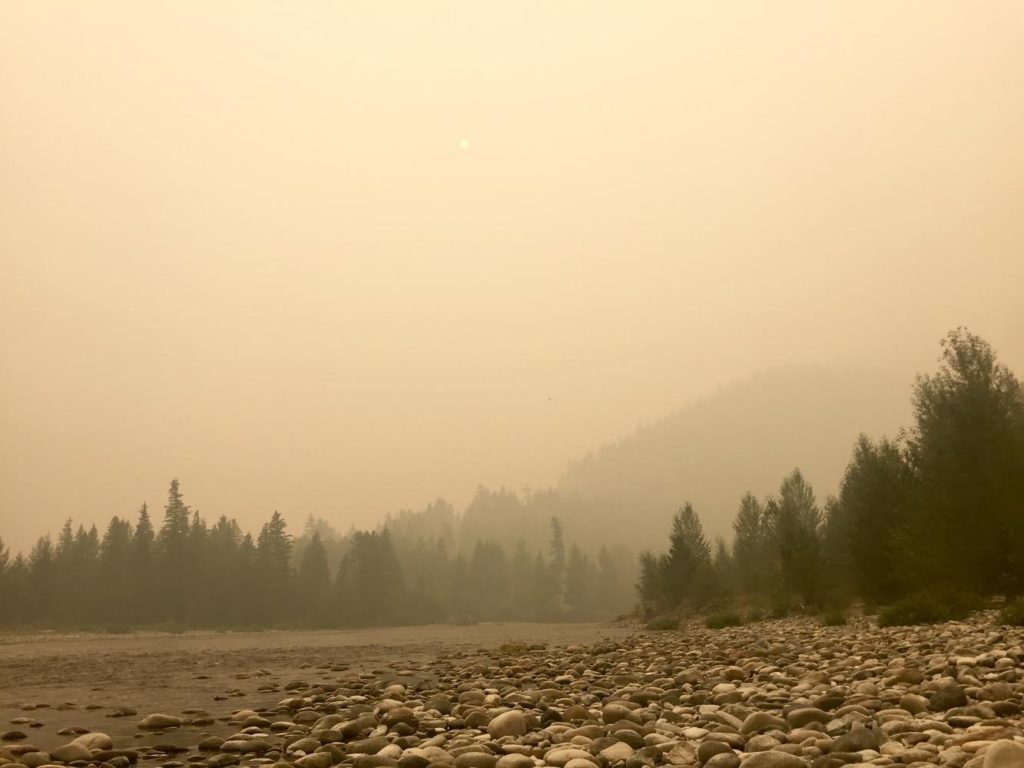
With these conversations in the back of our brains, we listened and tried to keep our jaws from dropping to the sidewalk as this beautiful soul named Michael Marker began singing a song about a former logger who has recently been laid off and is looking back on his career, wondering if he had been doing the right thing with his profession. “The Logger Song” was written 20 years ago and touched on everything Jan and I had been chatting about: resource extraction, how destructive clear-cutting can be to the environment, but how, if you’re in the industry, you might not necessarily see all of this. Indeed, throughout the course of the song, the logger questions whether or not they were actually “harvesting timber” (as their company likely spun it as) or if what they were really doing was taking essential habitat away from the wildlife that needed it. The logger is conflicted, but after the fact. I can imagine someone in the oil business who has recently come out of it might feel the same.
And this is why the song is so powerful: it transcends career boundaries. The song can be applied to any kind of resource extraction profession because it showcases the conflict and struggle faced by anyone in the industry: the need to provide for a new family, for example, versus the preservation of the wilderness. How do you come to terms with this disparity when you’re just wanting to keep a roof over your head and your only option is head to the oil fields, or the backwoods of BC?
Michael spends his days as a professor at the University of British Columbia, where his research and teaching focuses on the educational conditions for Indigenous people in both Canada and the US. For him, music is something he is passionate about but he wondered out loud to us if “The Logger Song” would resonate with young people. As a young person who sometimes struggles with overwhelm, especially in the world of environmental stewardship, I can say vehemently YES, it resonated with me. Jan thought the same. Now more than ever, we need all forms of advocacy to help turn the ship around and this song does just that: it illuminates a common struggle felt by many: indeed, even if your day job is not as that of a logger or an oil field worker, you might be in a similar situation: find a job, any job, that pays the bills. But the song also offers some hope – it reminds us that we often have these moments of clarity, illuminating the truth that we might not have seen before, and that push us to find new ways of doing things.
This (probably overused, but so damn good) quote by Albert Einstein has come up a couple of times for me recently and it’s a perfect accompaniment to Mike’s song:
“We cannot solve our problems with the same thinking we used when we created them.”

Albert Einstein
Theoretical physicist
I am so glad that our travels brought us through Princeton on this particular, sleepy Sunday, for had they not, we never would have met Mike, nor heard his song, and we wouldn’t have been uplifted to continue the work we’re both doing to advocate for a better planet. After he played his song, which turned out to be the last of his set (!!), we met him backstage to share our gratitude and to exchange ideas about how we could weave his song into another story that we’re working on, about (surprise surprise) logging and how we need to move past old ways of doing things (clear-cutting) and progress towards a more sustainable future (selective logging). With that, we began a beautiful conversation about adding his voice to the story. It was the start of (we hope!) more collaboration and conversation to come. As Einstein so beautifully points out: we have to come up with new ways of doing things if we want to have a shred of hope for a better future.
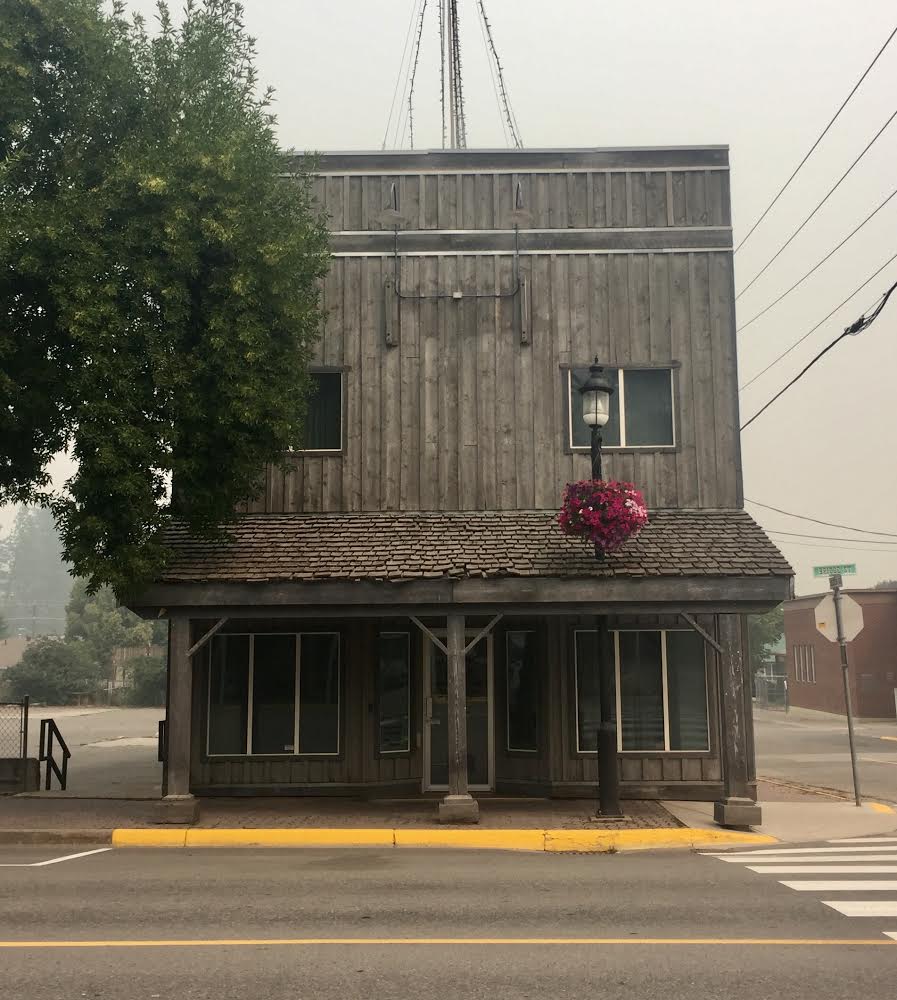


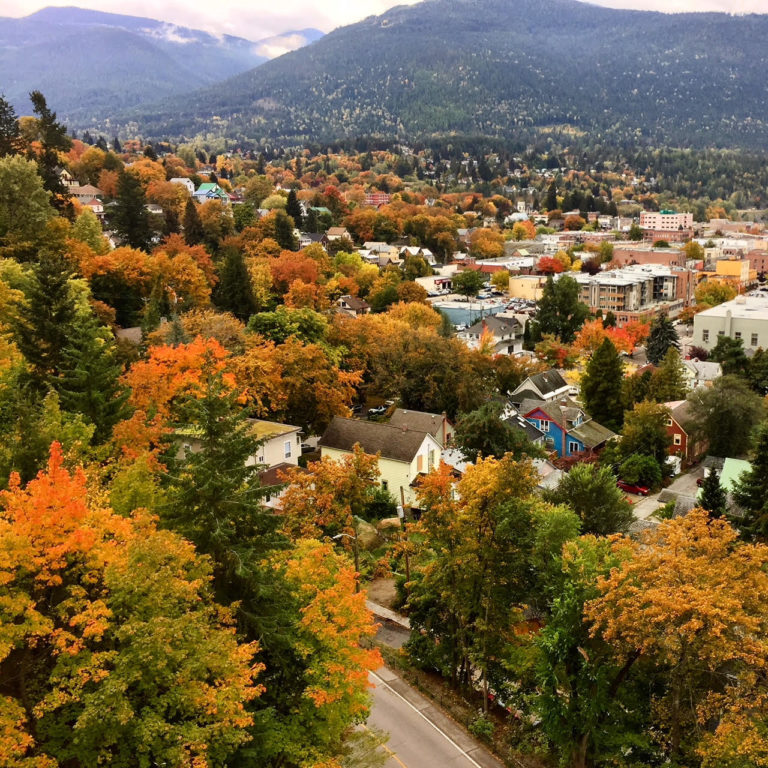
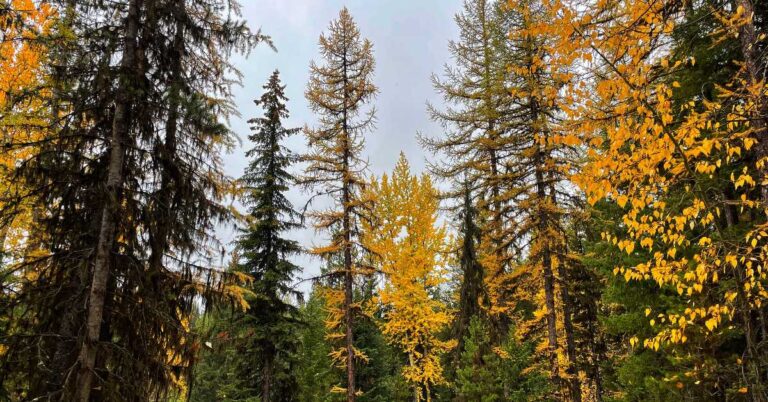
Lovely story. Thank you. Have a wonderful road trip.
Thank you Layne 🙂 It was amazing!